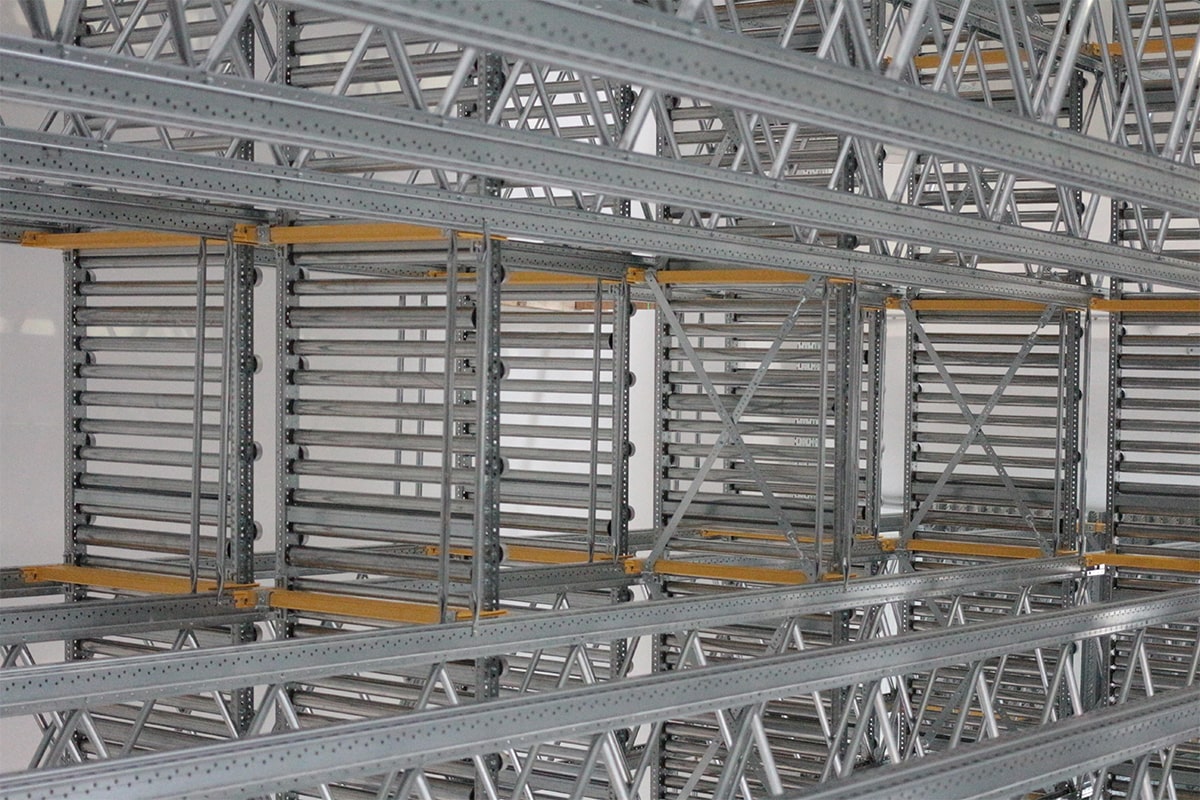Sliding shelf systems are shelf systems designed to provide easy and practical access to products in storage areas. Such shelf systems are in a structure where the shelf tables are placed side by side and can be moved by sliding. Shelf levels are placed on skids with vertical posts and horizontal rails. In this way, users can easily reach the shelf they want by pushing the shelf system.

Sliding Rack Systems Features
Many features of sliding shelf systems provide benefits to users. Features of the racking system that makes the storage areas more effective:
- Shelves are mounted on a rail system and can be easily moved by sliding. In this way, users can reach a specific shelf using the shelf system.
- Stored products can be accessed easily and quickly.
- It ensures that the materials to be stored are stored regularly. The order and organization of storage equipment increases.
- It saves space in storage areas. By moving the corridors, only the desired shelf can be reached, other areas can be kept closed.
- Materials are protected against damage as they are stored regularly.
Sliding Rack Systems Usage Areas
Sliding rack systems have many uses in different departments and organizations. Common uses:
Storage and Logistics Centers
Storage and logistics centers with large storage areas get more storage capacity by using sliding rack systems. Sliding shelf structures provide easy and fast access to stored products.
Automotive Industry
Institutions that produce automobiles need a sliding shelf system to keep automobile parts and devices in order.
Food and Beverage Industry
Food and beverage products come in different packaging sizes and types. Sliding rack systems are preferred in order to direct this administration in an orderly and organized manner.
Retail and Merchandising
Large retail stores and supermarkets use this type of shelving system to store their stocks neatly and to provide easy access to products.
Office Warehouses
Offices; they use this shelving system to store documents, files and office supplies in an orderly manner.
Textile and Clothing Industry
Textiles and clothing products come in different styles. Shelving systems can be used to orient and organize them in an orderly fashion.
Pharmacies and Health Services
Pharmacies, companies that sell or store drugs and medical supplies prefer the shelf system to keep therapeutic products in order.
Archive and Record Retention
Institutions; It uses such shelving systems to archive and store files, important documents and records in an orderly manner.
Types of Sliding Rack Systems
In order to meet all storage needs, sliding shelf systems are available in different designs. Depending on the functionality and usage in the storage areas, the most suitable one among these shelf systems can be chosen.
Manual Sliding Rack Systems
It carries all the features of the sliding shelf system. The sliding process of the shelves is carried out by applying a certain force.
Mechanical Sliding Rack Systems
Such shelving systems have the function of sliding the shelves from side to side using an electrical or mechanical mechanism. It consists of a main corridor and side corridors. The shelves that can move along the main corridor are directed to one of the side aisles, providing access to the desired shelf. Electric motors, gear wheels, chains or gear rods are generally used in the mechanism that performs the movement. This facilitates the removal of products and provides quick access.
Automatic Sliding Rack Systems
They are high-tech shelf systems to provide fully automatic access to products. Such shelving systems have the function of moving the shelf trays from side to side using electrical or computer-controlled mechanisms. Access to the desired shelf is provided by automatically sliding one of the side aisles from the shelves that can move along the main corridor. This automatic movement mechanism generally uses advanced technologies such as electric motors, sensors, computer control and gear wheels.
Dynamic Sliding Rack Systems
Dynamic sliding shelf systems are designed in a structure where the shelf tables are placed side by side and can be easily moved by mechanical or gravity. It works by sliding the shelf body by hand. Generally, wheels or bearing mechanisms are used to create a height difference in the front by using shelf tables. In this way, the products move towards the back of the shelf automatically and work in the order they are stored. Thanks to this system, the FIFO (First-In, First-Out) principle is applied and the shelf is taken from the front.






